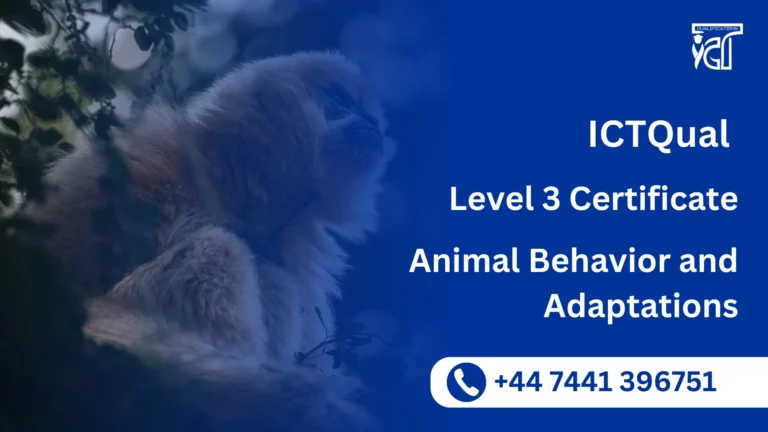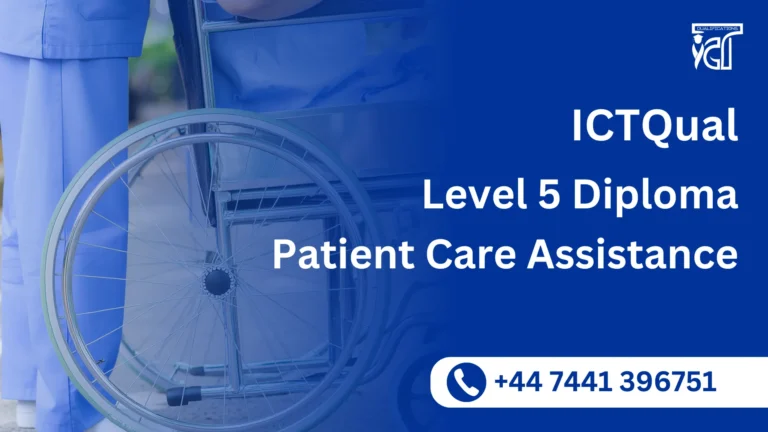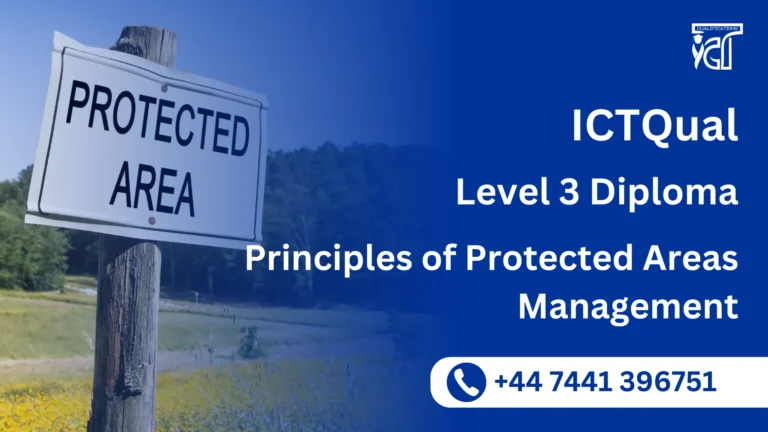The ICTQual Level 3 Diploma in Journalism is an entry-level qualification designed to introduce learners to the essential skills, principles, and practices of modern journalism. It provides a strong foundation for those who aspire to build a career in media, communication, or content creation, offering both theoretical knowledge and practical experience.
This diploma emphasizes the fundamentals of news writing, reporting, interviewing, and ethical communication. Learners will explore how journalism shapes public opinion, supports democratic values, and adapts to the challenges of digital transformation. By engaging with real-world case studies and practical assignments, participants gain the confidence to produce accurate, fair, and engaging content across print, broadcast, and online platforms.
The program is tailored for individuals who are curious about global issues, passionate about storytelling, and motivated to develop their voice in the media industry. It equips learners with transferable skills such as critical thinking, research, and effective communication, making it valuable not only for journalism but also for broader professional contexts.
Ultimately, the ICTQual Level 3 Diploma in Journalism serves as a stepping stone toward advanced qualifications and career opportunities in media. It prepares learners to progress into higher-level diplomas, specialized journalism pathways, or entry-level roles in reporting, editing, and digital content creation, ensuring they are ready to contribute meaningfully to the evolving world of journalism.
ICTQual Level 3 Diploma in Journalism
This qualification, the ICTQual Level 3 Diploma in Journalism, consists of 6 mandatory units.
| Sr# | Unit Title |
| 1 | Editorial Writing and Newsroom Techniques |
| 2 | Investigative Reporting and Source Validation |
| 3 | Journalism Ethics, Media Law, and Accountability |
| 4 | Digital Storytelling and Online Publishing |
| 5 | Audience Interaction and Public Messaging |
| 6 | Applied Journalism and Portfolio Development |
Learning Outcomes for the ICTQual Level 3 Diploma in Journalism:
Editorial Writing and Newsroom Techniques
By the end of this unit, learners will be able to:
- Write structured, engaging news articles using clear leads, transitions, and conclusions.
- Apply editorial standards to revise and refine written content.
- Use newsroom workflows to manage assignments and meet deadlines.
- Tailor writing style for different formats such as briefs, features, and opinion pieces.
- Collaborate with peers or editors to improve clarity and impact.
- Follow house style guides and editorial policies.
- Demonstrate awareness of audience expectations and platform-specific tone.
Investigative Reporting and Source Validation
By the end of this unit, learners will be able to:
- Plan and conduct investigations on public interest topics.
- Identify, verify, and cross-check sources for accuracy and credibility.
- Use basic research tools including public records and online databases.
- Handle sensitive information ethically and securely.
- Structure investigative stories with evidence-based narratives.
- Recognise risks and responsibilities in investigative journalism.
- Reflect on feedback to improve depth and clarity of reporting.
Journalism Ethics, Media Law, and Accountability
By the end of this unit, learners will be able to:
- Understand key legal concepts such as defamation, copyright, and contempt.
- Apply ethical principles in reporting sensitive or controversial topics.
- Follow professional codes of conduct and editorial guidelines.
- Respect privacy, consent, and data protection laws.
- Distinguish between public interest and unethical intrusion.
- Recognise bias, misinformation, and conflicts of interest.
- Demonstrate accountability and transparency in journalistic practice.
Digital Storytelling and Online Publishing
By the end of this unit, learners will be able to:
- Create digital content using text, images, and multimedia elements.
- Use basic publishing tools and content management systems (CMS).
- Adapt stories for blogs, websites, and social media platforms.
- Apply SEO techniques to improve visibility and reach.
- Format headlines, captions, and metadata for online audiences.
- Evaluate the impact of digital content using analytics and feedback.
- Demonstrate mobile-first and cross-platform publishing strategies.
Audience Interaction and Public Messaging
By the end of this unit, learners will be able to:
- Identify target audiences and tailor messages for clarity and impact.
- Use social media tools to share stories and build engagement.
- Write for public campaigns, announcements, and outreach initiatives.
- Monitor audience feedback and respond professionally.
- Apply storytelling techniques to increase reach and resonance.
- Use hashtags, tagging, and scheduling tools to optimise content delivery.
- Evaluate communication strategies using audience data and insights.
Applied Journalism and Portfolio Development
By the end of this unit, learners will be able to:
- Apply journalism skills in simulated or real-world reporting tasks.
- Build a professional portfolio showcasing diverse writing and media work.
- Reflect on personal strengths and areas for improvement.
- Follow editorial workflows from pitch to publication.
- Demonstrate time management and organisational skills.
- Uphold professional standards in conduct and communication.
- Prepare for freelance or entry-level journalism roles with confidence.
The ICTQual Level 3 Diploma in Journalism provides learners with a strong foundation in essential reporting, writing, and communication skills. It is designed to prepare participants for entry-level roles in media and communication while offering a pathway to higher-level qualifications in journalism.
Skill Development
- Learn the fundamentals of news writing and reporting
- Develop interviewing and research techniques for credible journalism
- Gain practical skills in editing and content creation
- Understand ethical principles and responsibilities in journalism
- Build confidence in producing accurate and engaging stories
Career Preparation
- Prepare for entry-level roles such as junior reporter or editorial assistant
- Acquire transferable skills useful in media, communication, and digital content
- Strengthen employability with a recognized international qualification
- Develop a portfolio of practical assignments and journalistic work
- Gain exposure to newsroom practices and media workflows
Professional Growth
- Enhance critical thinking and analytical skills for evaluating information
- Improve communication and storytelling abilities across multiple platforms
- Adapt to digital transformation and online publishing trends
- Build awareness of global issues and diverse perspectives
- Develop resilience and accountability in professional practice
Progression Opportunities
- Pathway to Level 4 and higher diplomas in journalism or media studies
- Opportunity to specialize in areas such as broadcast, investigative, or digital journalism
- Foundation for careers in reporting, editing, and content creation
- Support for progression into communication, PR, or related fields
The ICTQual Level 3 Diploma in Journalism is designed for individuals who are beginning their journey into the world of media and communication. It provides a strong foundation for those who are curious about storytelling, passionate about current affairs, and motivated to develop practical skills in reporting and writing.
Aspiring Journalists
- Learners interested in exploring journalism as a career path
- Individuals motivated to develop basic reporting and writing skills
- Candidates eager to understand the role of journalism in society
- Learners who want to build confidence in producing accurate and engaging content
- Participants preparing for entry-level roles in media and communication
Career Starters & Enthusiasts
- School leavers or early-career professionals seeking a recognized qualification in journalism
- Individuals with a passion for writing, reporting, or digital content creation
- Learners aiming to strengthen employability in media-related fields
- Candidates interested in building a portfolio of journalistic work
- Participants wishing to gain practical newsroom exposure
International Learners
- Learners motivated to understand journalism in diverse cultural and political contexts
- Individuals aiming to adapt to global media environments and digital-first practices
- Candidates seeking internationally recognized qualifications for career mobility
- Participants committed to ethical communication and fair reporting
- Learners eager to engage with global issues and perspectives
Progression-Oriented Candidates
- Learners preparing to advance to Level 4 and higher diplomas in journalism or media studies
- Individuals aspiring to specialize in areas such as broadcast, investigative, or digital journalism
- Candidates motivated to pursue careers in reporting, editing, or content creation
- Learners aiming to strengthen critical thinking and communication skills for future growth
The ICTQual Level 3 Diploma in Journalism provides learners with a strong foundation in reporting, writing, and ethical communication. It serves as a stepping stone for those beginning their journey in media and communication, opening pathways to both higher-level qualifications and entry-level career opportunities.
Academic Progression
- Progression to ICTQual Level 4 Diploma in Journalism or Media Studies
- Opportunity to pursue specialized diplomas in broadcast, digital, or investigative journalism
- Foundation for higher-level qualifications in communication, public relations, or media management
- Eligibility to advance toward Level 5 and Level 6 programs in journalism and leadership
- Support for continuous professional development in global media practices
Career Pathways
- Entry-level roles such as junior reporter, editorial assistant, or content creator
- Opportunities in local newspapers, radio, and online media platforms
- Roles in communication support, PR, or social media management
- Freelance opportunities in writing, blogging, and digital content production
- Foundation for progression into newsroom and editorial coordination roles
Professional Growth
- Strengthen confidence in producing credible and engaging journalistic content
- Develop transferable skills in research, communication, and critical thinking
- Adapt to digital-first publishing and multimedia storytelling
- Build awareness of ethical responsibilities and global perspectives in journalism
Entry Requirements
Learners must meet the following criteria to be considered for admission into the course:
- Age Requirement: Minimum age of 19 years or above
- Educational Background: Completion of secondary education or equivalent. Candidates with a strong interest in journalism, writing, or communication may be accepted without prior formal qualifications in media
- Work Experience: No prior industry experience is required. However, learners with exposure to school publications, blogging, or community reporting will find the course especially beneficial
- English Language Proficiency: Good command of spoken and written English is essential, as the program is delivered entirely in English. International learners may be asked to provide evidence of proficiency through recognized language tests (e.g., IELTS, TOEFL, or equivalent)
Register Now
Qualification Process
Qualification Process for the ICTQual Level 3 Diploma in Journalism
- Self-Assessment:
Begin by evaluating your eligibility to ensure you meet the qualification requirements, including work experience, knowledge, and language proficiency. - Registration:
Complete your registration by submitting the required documents, including a scanned copy of a valid ID, and paying the registration fee. - Induction:
An assessor will conduct an induction to confirm your eligibility for the course and explain the evidence requirements. If you do not meet the criteria, your registration will be cancelled, and the fee will be refunded. - Assignments & Evidence Submission:
Provide all assignments and the necessary evidence based on the assessment criteria outlined in the course. If you are unsure of the required evidence, consult with the assessor for guidance on the type and nature of evidence needed. - Feedback and Revision:
The assessor will review your submitted evidence and provide feedback. Evidence that meets the criteria will be marked as “Criteria Met,” while any gaps will be identified. You will be asked to revise and resubmit if needed. - Competence Evidence:
Submit final evidence demonstrating that all learning outcomes have been met. This evidence will be marked as “Criteria Met” by the assessor once it is satisfactory. - Internal Quality Assurance (IQA):
The Internal Quality Assurance Verifier (IQA) will review your evidence to ensure consistency, quality, and compliance with standards. - External Verification:
The IQA will submit your portfolio to ICTQUAL AB External Quality Assurance Verifiers (EQA) for final confirmation. The EQA may contact you directly to verify the authenticity of your evidence. - Certification:
Upon successful completion of all checks, ICTQUAL AB will issue your official certificate, confirming that you have attained the ICTQual Level 3 Diploma in Journalism







